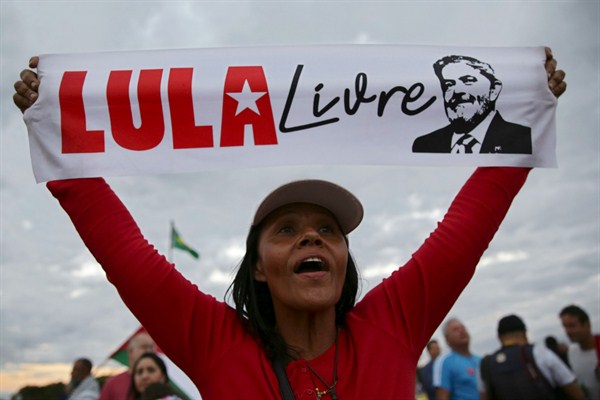Operation Car Wash, or Lava Jato as it is known in Brazil, is widely regarded as the biggest corruption investigation in history. It has ensnared some of the biggest and most powerful Brazilian companies, and its investigators have brought charges against hundreds of businessmen, officials and politicians, including former President Luiz Inacio Lula da Silva, widely known as Lula.
Its proponents say that Lava Jato has been a welcome cleansing force in a graft-ridden part of the world, but its impartiality has been called into question. According to hacked messages published by the online investigative news outlet The Intercept earlier this year, the case against Lula was tainted by improper coordination between prosecutors and the judge in the case, Sergio Moro, who is now serving as President Jair Bolsonaro’s justice minister.
To discuss the questions swirling around Operation Car Wash and what its legacy might be, WPR’s Elliot Waldman is joined by Michael Mohallem, an anti-corruption specialist and human rights lawyer at the Getulio Vargas Foundation in Rio de Janerio, where he heads the Center for Justice and Society.
If you like what you hear on Trend Lines and what you’ve read on WPR, you can sign up for our free newsletter to get our uncompromising analysis delivered straight to your inbox. The newsletter offers a free preview article every day of the week, plus three more complimentary articles in our weekly roundup every Friday. Sign up here. Then subscribe.
Listen:
Download: MP3
Subscribe: iTunes | RSS | Spotify
Relevant Articles on WPR:
What Will Lula’s Release From Prison Mean for Brazil’s Left?
Around the World, Anti-Corruption Drives Face the Law of Unintended Consequences
Brazil’s Anti-Corruption About-Face Could Signal the End of an Era
Trend Lines is produced and edited by Peter Dörrie, a freelance journalist and analyst focusing on security and resource politics in Africa. You can follow him on Twitter at @peterdoerrie.
To send feedback or questions, email us at podcast@worldpoliticsreview.com.

